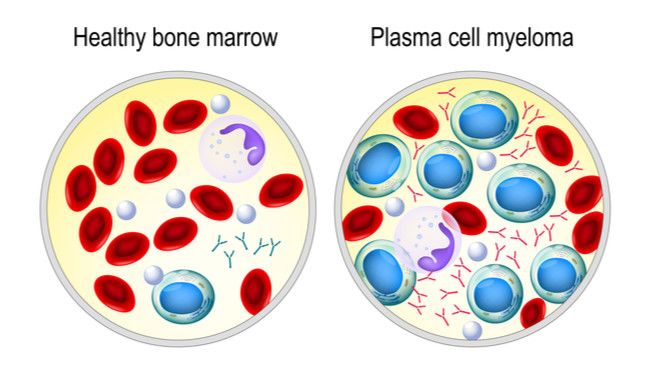Multiple myeloma is a type of cancer that affects plasma cells, a type of white blood cell that produces antibodies to help fight off infection. Though it is a rare cancer, it is important to be aware of the symptoms so that it can be caught and treated early on. In this article, we will discuss the multiple myeloma symptoms that you need to know.
What Are the Symptoms of Multiple Myeloma?
The symptoms of multiple myeloma can vary from person to person. Some people may experience no symptoms at all, while others may experience a combination of symptoms. Here are some of the common multiple myeloma symptoms:
Bone Pain
One of the most common symptoms of multiple myeloma is bone pain. This pain can occur in any part of the body, but is most commonly felt in the lower back, hips, and skull. The pain can be dull or sharp and can be constant or come and go.
Fatigue
Fatigue is another common symptom of multiple myeloma. This fatigue can be caused by anemia, a condition in which the body doesn’t have enough red blood cells to carry oxygen to the body’s tissues.
Weakness
Weakness is also a common symptom of multiple myeloma. This weakness can be caused by the disease itself or may be a side effect of the treatments used to treat the disease.
Frequent Infections
Multiple myeloma can weaken the immune system, making it easier for infections to develop. People with multiple myeloma may experience frequent infections, such as urinary tract infections or pneumonia.
Numbness or Tingling
Numbness or tingling in the hands and feet can also be a symptom of multiple myeloma. This numbness or tingling is caused by damage to the nerves from the cancer.
Other Symptoms
Other symptoms of multiple myeloma may include:
- Weight loss
- Loss of appetite
- Swelling in the legs
- Thirst
- Frequent urination
- Constipation
Conclusion
Multiple myeloma is a rare but serious cancer that can cause a variety of symptoms. If you are experiencing any of the above symptoms, it is important to talk to your doctor right away. Early detection and treatment can improve your chances of a successful outcome.





